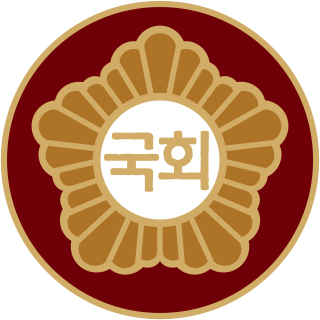
Cameroon, officially the Republic of Cameroon, is a country in Central Africa. It shares boundaries with Nigeria to the west and north, Chad to the northeast, the Central African Republic to the east, and Equatorial Guinea, Gabon, and the Republic of the Congo to the south. Its coastline lies on the Bight of Biafra, part of the Gulf of Guinea, and the Atlantic Ocean. Due to its strategic position at the crossroads between West Africa and Central Africa, it has been categorized as being in both camps. Cameroon's population of nearly 31 million people speak 250 native languages, in addition to the national tongues of English and French, or both. Early inhabitants of the territory included the Sao civilisation around Lake Chad and the Baka hunter-gatherers in the southeastern rainforest. Portuguese explorers reached the coast in the 15th century and named the area Rio dos Camarões, which became Cameroon in English. Fulani soldiers founded the Adamawa Emirate in the north in the 19th century, and various ethnic groups of the west and northwest established powerful chiefdoms and fondoms.

The politics of Cameroon takes place in the context of an electoral autocracy where multi-party elections have been held since 1992, the ruling party wins every election, and Paul Biya has been president since 1982. Since Cameroon's independence in 1960, it has been a single-party state and ruled only by two presidents: Ahmadou Ahidjo and Paul Biya. Political opposition are repressed and elections are manipulated in favor of the ruling party.
These are lists of incumbents, including heads of states or of subnational entities.

The speaker of a deliberative assembly, especially a legislative body, is its presiding officer, or the chair. The title was first used in 1377 in England.

The Cameroon People's Democratic Movement is the ruling political party in Cameroon. Previously known as the Cameroonian National Union, which had dominated Cameroon politics since independence in the 1960s, it was renamed in 1985. The national president of the CPDM is Paul Biya, the president of Cameroon, while the secretary-general of the party Central Committee is Jean Nkuete.

The National Assembly of the Republic of Korea, often shortened to the National Assembly, is the unicameral national legislature of South Korea. Elections to the National Assembly are held every four years. The latest legislative elections was held on 10 April 2024. The current National Assembly held its first meeting, and also began its current four year term, on 30 May 2024. The next Speaker was elected 5 June 2024. The National Assembly has 300 seats, with 253 constituency seats and 47 proportional representation seats; 30 of the PR seats are assigned an additional member system, while 17 PR seats use the parallel voting method.
The Commonwealth Parliamentary Association (CPA), previously known as the Empire Parliamentary Association, is an organisation which works to support good governance, democracy and human rights.

The National Assembly of Pakistan is the lower house of the bicameral Parliament of Pakistan, with the upper house being the Senate. As of 2023, the National Assembly has a maximum membership of 336, of which 266 are directly elected by an adult universal suffrage and a first-past-the-post system to represent their respective constituencies, while 60 are elected on reserved seats for women and religious minorities from all over the country. Members hold their seats for five years or until the house is dissolved by the President on the advice of the Prime Minister. The house convenes at the Parliament House, Red Zone, Islamabad.

Elections in Cameroon occur in a system of electoral autocracy, as the ruling party manipulates elections and represses political opposition.

The Parliament of Ghana is the legislative body of the Government of Ghana.

The National Assembly is Zambia's unicameral legislative body. Between 1972 and 1990, Zambia was a one-party state with the United National Independence Party (UNIP) as the sole legal party.

The Speaker of the National Assembly ; informally as Speaker National Assembly, is the presiding official of the National Assembly of Pakistan– a lower house of the Parliament of Pakistan.

A governor is the head of a province, appointed by the president of Pakistan on the advice of the prime minister. The governor is the nominal head of the provincial executive and the representative of the federal in their province. Articles 101 to 105 of the Constitution of Pakistan deal with the appointment, conditions, and duties of a governor.

The National Assembly is the lower house of the Parliament of Cameroon. It has 180 members, elected for five-year terms in 49 single and multi-seat constituencies. Together with the senate, it constitutes the legislative arm of government.

The Constitution of Cameroon is the supreme law of the Republic of Cameroon. Adopted in 1972, it is Cameroon's third constitution. The document consists of a preamble and 13 Parts, each divided into Articles. The Constitution outlines the rights guaranteed to Cameroonian citizens, the symbols and official institutions of the country, the structure and functions of government, the procedure by which the Constitution may be amended, and the process by which the provisions of the Constitution are to be implemented.

Cavayé Yéguié Djibril is a Cameroonian politician who has been the President of the National Assembly of Cameroon since 1992. He is a leading member of the Cameroon People's Democratic Movement (CPDM).
Jean-Bernard Ndongo Essomba was a Cameroonian politician. He was President of the Parliamentary Group of the Cameroon People's Democratic Movement (RDPC) in the National Assembly of Cameroon from 1992 to 1997 and he has held that post again since 2002.

The Pévé language, sometimes referred to as Lamé, is a member of the Masa branch of the Chadic family that is spoken in parts of Cameroon and the Republic of Chad.












